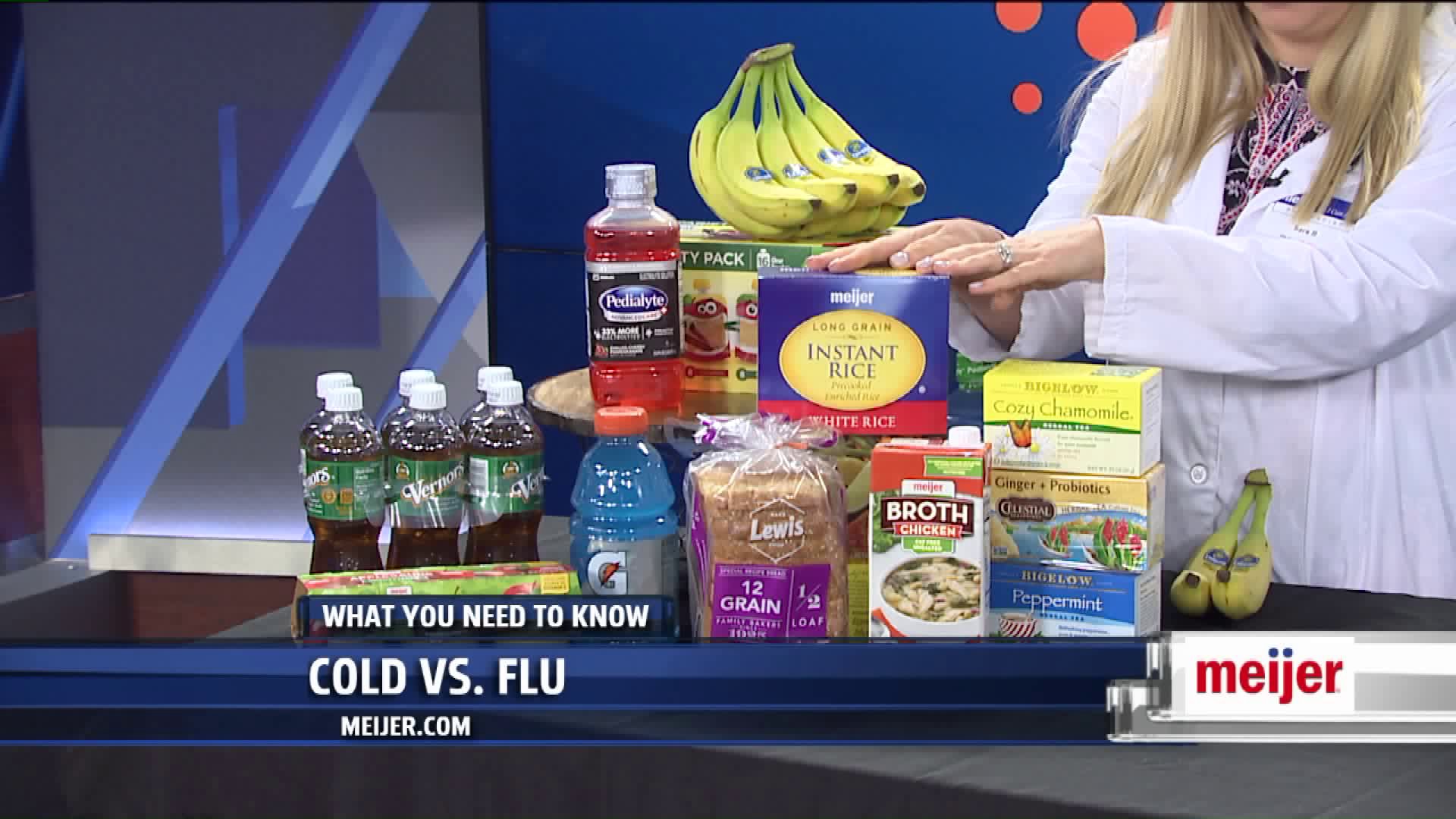'Tis the season for sneezing. The colder weather often brings cold and flu symptoms along with it. While the two illnesses are similar, they need to be treated in completely different ways.
A pharmacist from Meijer stopped by to explain the difference between the flu and a cold, and how each illness should be treated.
When a person comes down with an illness, a cold usually comes on gradually, while the flu can be very sudden. Also, the flu will cause the body to ache, whereas a cold will not.
There is no cure for a cold or flu once it's caught, but there are ways to lessen the duration and symptoms.
Seasonal influenza, also known as the flu, is a contagious respiratory disease that can cause mild to severe illness. Every flu season is different, and influenza effects vary from person to person.
There is no expiration date to receiving a flu shot, so the sooner you receive the flu shot, the better your chances are to stay healthy. Many people don’t realize it takes two weeks after you get the vaccination for it to be fully effective in the body.
It’s important to get vaccinated because the flu can be very contagious. The CDC recommends that just about everyone over the age of 6 months old be vaccinated each year against the flu.
Symptoms don’t start until 1 to 4 days after the virus enters the body – meaning they could pass on the flu to other friends or family members before you even know they are sick, as well as while you are sick. Additionally, some people can be infected with the flu virus but have no symptoms. During this time, those persons may still spread the virus to others.
Don’t wait until flu season hits to get you and your family vaccinated. Now that classes have begun, kids can literally bring viruses into your home every day, and it becomes difficult to keep influenza from spreading throughout the whole family.
It's also is important to wash hands often with soap and water. If soap and water are not available, use an alcohol-based hand rub.
While a bad case of the flu might ruin your appetite, it’s important to stay well-nourished and hydrated in order for your body to stay strong and fight the flu. Losing fluids is the main concern that can lead to dehydration and increased sickness.
Consuming easy-to-digest foods and beverages also ensures the body gets the right fluids and nutrients it needs to fund off the flu.
Make sure to take frequent, small sips in order to stay hydrated:
- Tea with Honey: Ginger tea is said to relieve nausea and chamomile tea is good for soothing an upset stomach. Adding a small amount of honey can make the hot tea especially soothing to a sore throat.
- Sports Drinks: Gatorade, Powerade, Propel or any sports drink with electrolytes helps to replenish sodium and potassium levels depleted from vomiting, sweating or diarrhea.
- Pedialyte: Pedialyte is a great source of key nutrients and electrolytes, and works just as well for adults as it does for children.
- Broth: Beef, chicken or vegetable broth are also good sources of hydration for those who have a savory palate.
For patients having difficulty keeping food down or those with little appetite, eating a diet of easily digestible foods is a good place to start. Just remember BRAT:
- Bananas: Bananas are rich in potassium and can help replenish lost electrolytes.
- Rice: Plain rice is filling and the bland flavor makes it easy for a sick body to digest. Plain oatmeal is another fiber-dense option.
- Applesauce: Low in sugar and rich in Vitamin C, unsweetened applesauce is easy on your digestive system.
- Toast: Plain toast (or saltine crackers) won’t aggravate an upset stomach and can help send you on the path to recovery.
To learn more about what products Meijer has to offer, visit meijer.com.




